15 Jamaican Patois Sayings Applicable To All Facets Of Life

Jamaicans have proverbs, expressions, and commentary on just about everything. Marital woes? Workplace drama? The frenzied pace of life? You name it–they’ve probably got an opinion. Some of these sayings can be unwittingly amusing, especially when delivered in a deadpan way, which is kind of the point. But the lessons are valuable.
Jamaican Patois is a blend of English, African languages, and Creole. Jamaicans, whether stateside or on the island, are passionate people. As such, when they tell you a story, don’t expect brevity. Expect high drama, gesticulating, and animated facial expressions. Recently, there was a meme on social media showing how a Jamaican might describe seeing a huge lizard in their home. Instead of saying, “Oh my God, I just saw a lizard and it scared me!” they might say, “Lawd, let meh ketch meh breath!” before launching into the story. Get comfortable–you might be there for a minute.
Here are 15 “Jamaicanisms” (and variations of standard English expressions) you might hear.
Jamaicanism #1

“When yuh throw stone inna pig pen di one dat squeal is di one dat get lick.”
Translation: “When you throw a stone in a pig pen, the one that squeals is the one that got hit.”
This is “hit dogs holler” with more seasoning.
Jamaicanism #2

“Thief neva like fi see thief with long bag.”
Translation: “A thief never likes to see another thief with more stolen goods than they have.”
Those who excel at something through questionable means scoff at those who are more successful via equally questionable means.
Jamaicanism #3
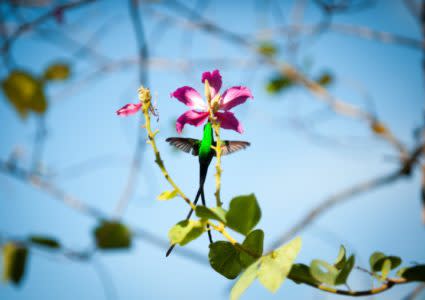
“We Likkle But Wi Tallawah.”
Translation: “We’re little but we’re mighty.”
This is usually a patriotic statement about Jamaica. Small in size, but full of strength and grit.
When it comes to international influence, Jamaica is a leader in the Caribbean. Its contributions to music, politics, and sports are enormous.
Jamaicanism #4

“Di hiya di monkey clime, di more em expose.”
Translation: “The higher the monkey climbs, the more he exposes himself.”
This refers to those in leadership positions. As explained by My Island Jamaica, “higher positions require more responsibilities and also expose vulnerabilities. So continue to work on yourself.”
Jamaicanism #5

“Wah good fi di goose, good fi di gander.”
Translation: “What’s good for the goose is good for the gander.”
You’ve probably heard this one before and there are a few interpretations.
Phrases lists the meaning as, “any decision or rule that applies to one person must be applied to the others especially of the same group.”
Jamaicanism #6

“Yuh sarry fi mawga dawg, mawga dawg tun roun bite yuh.”
Translation: “You feel sorry for a skinny and vulnerable dog, but it turns around and bites you.”
Be wary of extending kindness because the recipient might not show appreciation.
Jamaicanism #7

“Ben di tree when it young, when it ole it wi bruk.”
Translation: “Bend the tree when it’s young because when it’s old, it’ll break.”
It’s easier to teach children when they are younger and more flexible than when they are older and set in their ways.
Jamaicanism #8
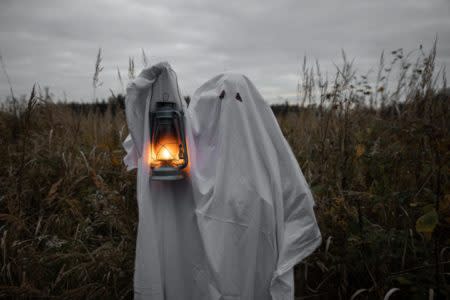
“Duppy know who fi frighten, an’ who fi tell good night.”
Translation: “A ghost knows who to scare and who to tell goodnight.”
A bully knows exactly who to pick on and who to leave be.
Jamaicanism #9
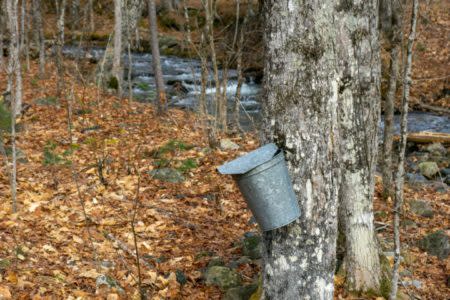
“Bucket wid hole a battam nu have no business a riverside.”
Translation: “A bucket with a hole at the bottom has no business by the riverside.”
When judging others, be aware that you have faults of your own. This is a spin on “don’t throw stones if you live in a glass house.”
Jamaicanism #10

“Same bird dat carry news come, a di same bird dat tek it bak.”
Translation: “The same bird who brings gossip is the same bird that takes it back.”
Those who gossip to you will gossip about you. Be mindful with whom you share your personal business.
Jamaicanism #11
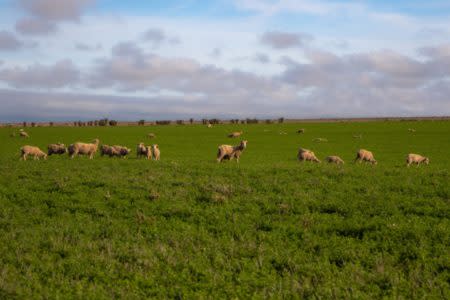
“Hog hide under sheep wool but ’em grunt betray ’em.”
Translation: “A pig hides under sheep’s wool, but his grunt betrays him.”
A person may be able to mask themselves temporarily, but their true character emerges sooner or later.
Jamaicanism #12
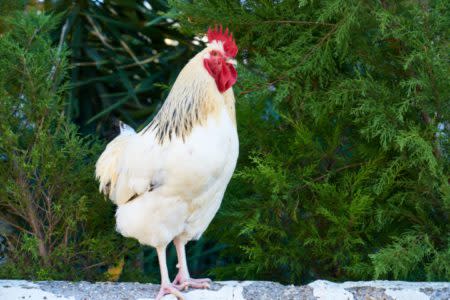
“Rain a fall, breeze a blow, chicken batty outta door.”
Translation: “Rain falls, breeze blows, chicken backside out the door.”
If you have an older Jamaican parent or grandparent, they’ve probably said this little ditty followed by a laugh.
According to Things Jamaicans Say! on Facebook, it means “the carefree are often unprepared for adversity.”
Jamaicanism #13

“Nuh mek yuh lef han kno wha yuh right han a do.”
Translation: “Don’t let your left hand know what your right hand is doing.”
The Jamaicans website explains, “keep your own counsel. Not everything you know needs to be told, even to those that are closest to you.”
Jamaicanism #14
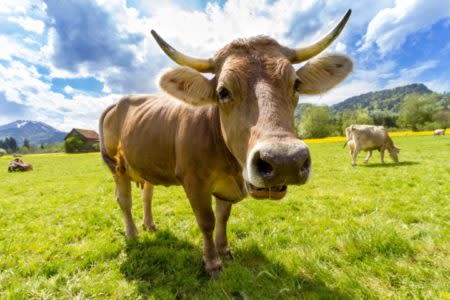
“You cyan sit pon cow an’ cuss cow skin.”
Translation: “You can’t sit on a cow and curse its skin.”
When you’re dependent on the charity of others, don’t be rude to them. This is another way of saying, “don’t bite the hand that feeds you.”
Jamaicanism #15

“Before yuh married keep both eye open; after yuh married, shut one.”
Translation: “Before you get married, keep both eyes open; after you’re married, shut one.”
Before taking the next step in your relationship, keep an eye out for red flags which could mean trouble down the line. Hopefully, when you’re married, you won’t have to be so vigilant.

